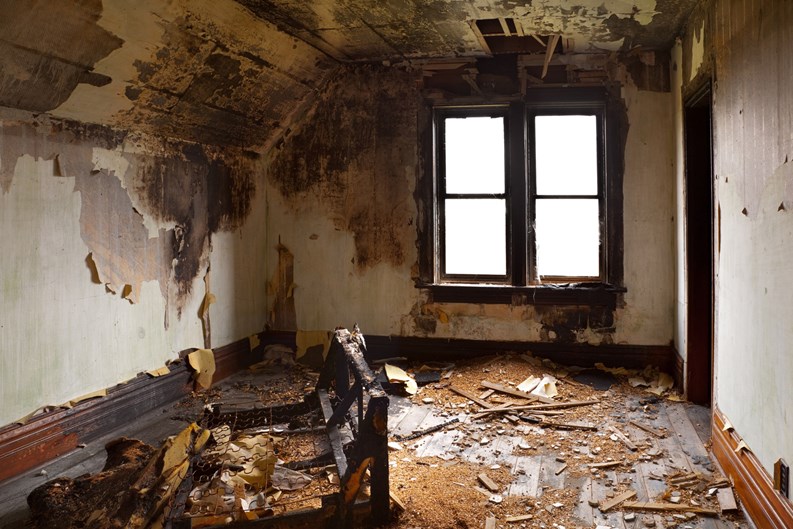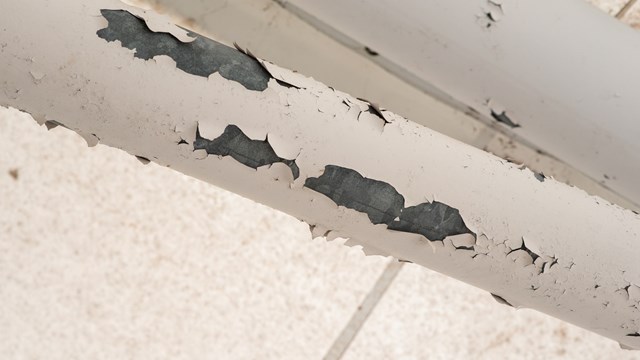There are few things more traumatic than dealing with a fire in one's home. From loss of possessions either replaceable or one-of-a-kind, to the exponentially more horrific potential of lost human life, the baseline is bad -- and things can only get worse from there. A co-op or condo resident, after having survived the actual flames, must now navigate a probably unfamiliar bureaucracy of repairs and restitution. They have to deal with both their own personal situation as well as that of the building at large--not to mention bounce between board members, property managers, contractors, and insurance professionals.
All of this is likely to be an emotionally exhausting and stressful process - but with competent, empathetic professionals to help put the pieces back together, the process can be made at least a little bit smoother.
Compassionate Calm
From a property management standpoint, dealing with the effects of a fire involves protecting the interests of the building and the association, while simultaneously dealing with very real and emotional human beings who've been through a traumatic event. Balancing the practical with the personal can be challenging, to say the least.
“Recently, we had a 12-year-old girl wake up early one morning and light incense in her apartment,” recalls Josh Koppel, President of HSC Management Corp in Yonkers. “The owner must have been a hoarder, because the whole place just burst into flames. And the girl's grandmother burned to death. The family was related to a board member; I knew them."
So what do you do in such an awful, tragic situation? "You call, give your condolences, send flowers," says Koppel, "and let them know that you're available if there's anything else that you can do. And then you have to consider that a fire in the building not only affects families in its direct radius, but it reverberates,” he continues. “There's water damage, or doors are broken into. I once had people throwing their stuff out of a window down a fire escape, nearly giving a heart attack to the older woman below on the first floor.”
Mitigating Expectations
Unfortunately in the wake of a fire, an affected unit owner may approach management or other personnel with requests that the professional cannot reasonably fulfill. So it's part of the manager or board's job to gently explain proper procedure to the victim.
“Many times, unit owners will come to [the] board or management and start making all kinds of demands,” says Stephen Elbaz, President of Esquire Management in Brooklyn. “They want money for damaged items immediately; they want to be put up in hotels. But it doesn't work like that. You have to calmly explain that you're sorry about what has happened, but you will be hiring an insurance adjuster. And many co-op shareholders feel as if the building will cover [the loss of] their personal property, which is not the case. If a building or apartment is damaged by fire, the insurance rebuilds it to the state that it was when the building became a co-op. So if an owner has drapes, wallpaper, carpets, furniture, clothing, jewelry, etc., even if something is built into the unit, those will not be covered by the building's insurance. That's why people are encouraged -- and often required by their bylaws -- to get their own unit-owner policies.”
Sensitivity Training
While following proper procedure is an imperative, when people have suddenly found themselves thrust into a confusing and certainly terrifying circumstance that they could not have anticipated, it's vital to treat them with kindness and patience.
“A fire recently occurred at one of our buildings in the city, and, as I deal with commercial claims, I tend to work with the boards or property managers,” relates Stephannie K. Ciantro, a property claims manager with Mackoul Risk Solutions in Island Park. “But I spoke with one owner, a young mom whose baby I believe to have been about eight months old. And as a fellow young mother, I identified with her, and could tell she was having a really hard time dealing with this upheaval of her routine. Dealing with a fire can involve this all-encompassing feeling of loss, and this lady is simultaneously trying to sleep-train and get a baby on schedule, which is traumatic in and of itself. So you really need to explain to these people that all they can do is take things step by step, and not to feel as if the odds are stacked against them, which they very well might.”
While her insured in these scenarios is the building, Ciantro says she tells an individual owner or resident that they can count on complete transparency from her. “We're going to approach this in an organized fashion and follow all the steps that need to be followed in an efficient and humane manner," she explains. "It's super important in these times that we're not just paying lip service to the victims. To be disingenuous at a time like this... I find that to be a really bad offense. It's important to remain receptive and make sure that you understand the mental stress and anguish that's going on, to provide any necessary comfort, but also to ensure that the job is getting done right.”
Mike Odenthal is a staff writer at The Cooperator.







Leave a Comment